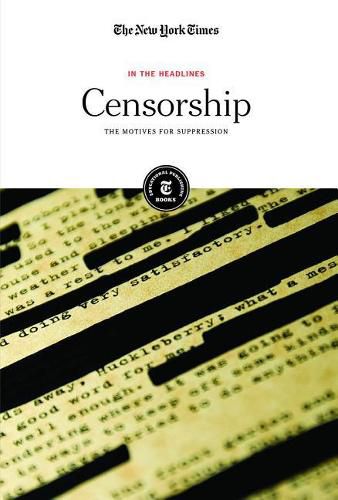Readings Newsletter
Become a Readings Member to make your shopping experience even easier.
Sign in or sign up for free!
You’re not far away from qualifying for FREE standard shipping within Australia
You’ve qualified for FREE standard shipping within Australia
The cart is loading…






In October 2018, Jamal Khashoggi, a prominent journalist who was critical of the Saudi Arabian government, was assassinated at the Saudi consulate in Istanbul. His was an extreme case of censorship: the act of suppressing people, platforms, and ideas that are contrary to the status quo. Why do governments, publications, and other entities censor information? Is motivation driven only by authoritarian power, or are there sometimes benefits to censorship, as in that of the U.S. press during times of war? In this collection, readers encounter cases of suppression in the arts, scientific studies, and the evolution of censorship in the internet age, particularly in nations such as China, Russia, and Saudi Arabia. Media literacy questions and terms aid readers in analyzing how this complex topic is reported.
$9.00 standard shipping within Australia
FREE standard shipping within Australia for orders over $100.00
Express & International shipping calculated at checkout
In October 2018, Jamal Khashoggi, a prominent journalist who was critical of the Saudi Arabian government, was assassinated at the Saudi consulate in Istanbul. His was an extreme case of censorship: the act of suppressing people, platforms, and ideas that are contrary to the status quo. Why do governments, publications, and other entities censor information? Is motivation driven only by authoritarian power, or are there sometimes benefits to censorship, as in that of the U.S. press during times of war? In this collection, readers encounter cases of suppression in the arts, scientific studies, and the evolution of censorship in the internet age, particularly in nations such as China, Russia, and Saudi Arabia. Media literacy questions and terms aid readers in analyzing how this complex topic is reported.